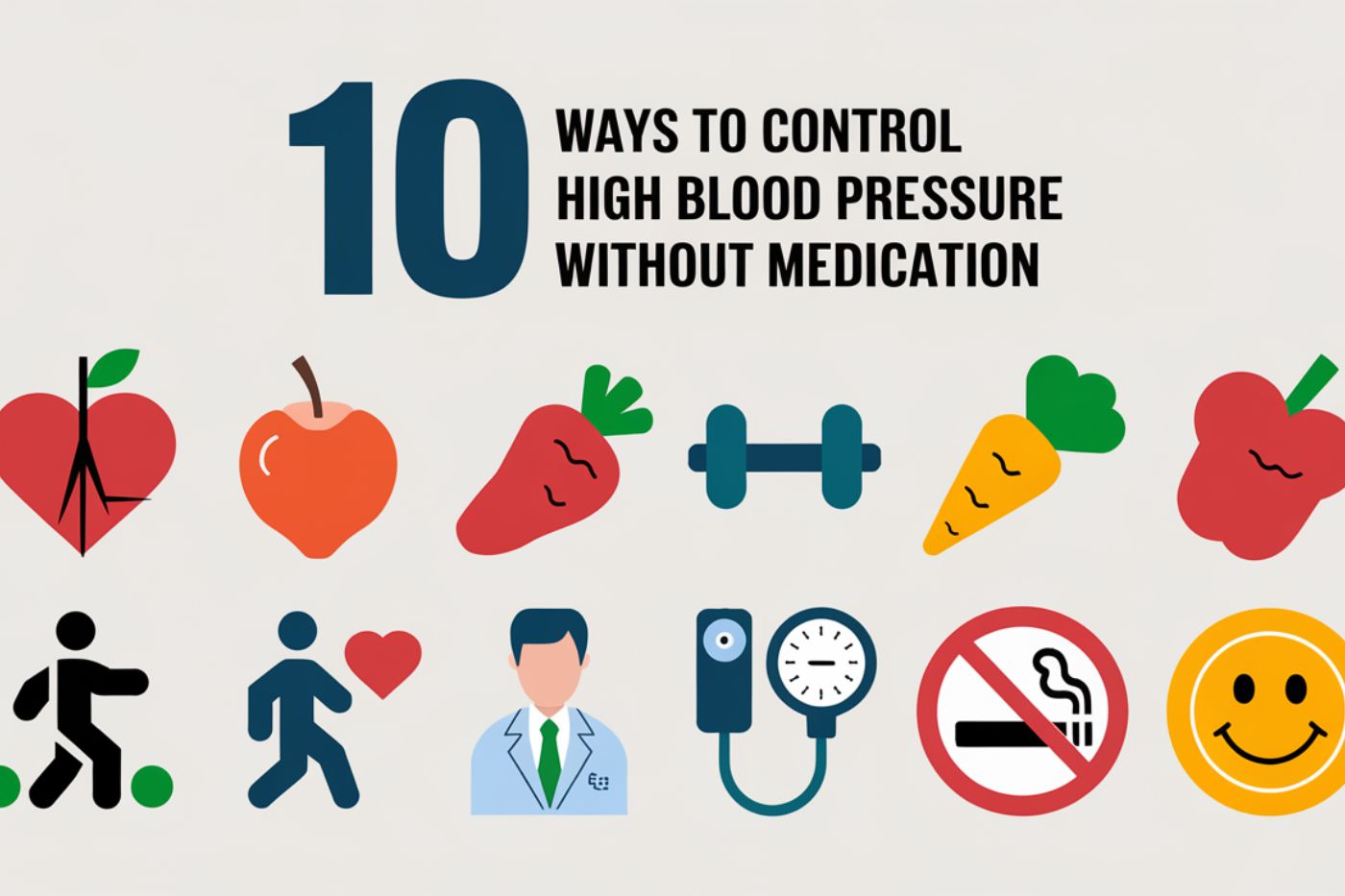Living with high blood pressure can feel overwhelming, but natural solutions exist. Many ways to lower blood pressure without medication have proven effective for people seeking drug-free alternatives.
Understanding various ways to lower blood pressure through lifestyle changes can make a significant difference in your health journey. These methods often provide long-lasting benefits without the side effects commonly associated with medications.
Recent studies from the American Heart Association show that lifestyle modifications can significantly impact blood pressure readings. Natural ways to lower blood pressure can reduce systolic pressure by up to 20 mmHg in many cases.
Understanding High Blood Pressure
High blood pressure, or hypertension, affects approximately 47% of American adults according to recent CDC data. Understanding blood pressure measurements and what they mean helps you take control of your health journey more effectively.
Many people don’t realize they have high blood pressure until it causes significant health issues. This silent condition damages your cardiovascular system over time, making prevention and management crucial for long-term health.
Modern lifestyle factors like processed foods, sedentary habits, and chronic stress contribute heavily to elevated blood pressure. Recognizing these factors helps in developing effective ways to lower blood pressure naturally.
The Impact of Weight Management
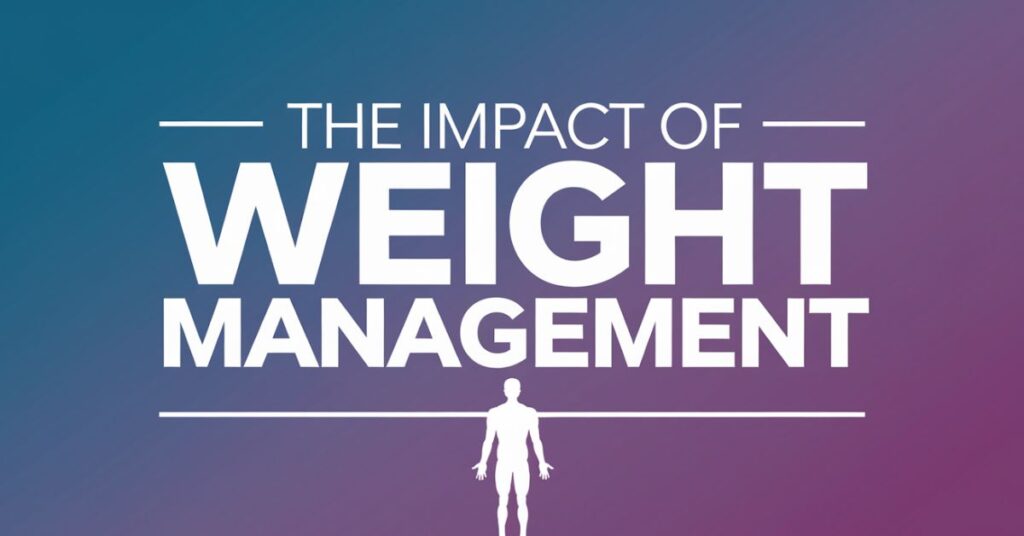
Losing weight stands among the most effective ways to lower blood pressure naturally. Research shows that each kilogram of weight loss can reduce systolic pressure by about 1 mmHg.
Maintaining a healthy weight directly impacts your cardiovascular system’s efficiency. Your heart works harder with each extra pound, making weight management crucial for blood pressure control.
Body fat, especially around the midsection, increases inflammation and strain on your blood vessels. Reducing this excess weight through healthy methods provides multiple benefits beyond blood pressure control.
Exercise and Physical Activity
- Regular aerobic exercise reduces blood pressure by strengthening your heart and improving vessel flexibility
- Aim for 150 minutes of moderate activity or 75 minutes of vigorous activity weekly
- Include both cardio and strength training for optimal blood pressure management
- Start slowly and gradually increase intensity as your fitness improves
- Choose activities you enjoy to maintain long-term consistency
Dietary Approaches
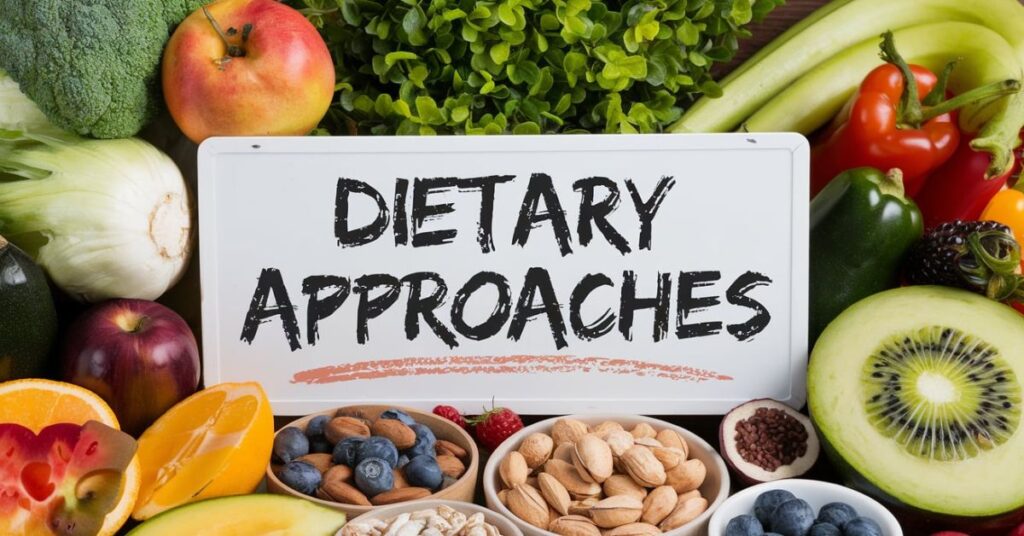
The DASH Diet Explained
The Dietary Approaches to Stop Hypertension (DASH) diet specifically targets blood pressure reduction. This evidence-based eating plan emphasizes fruits, vegetables, whole grains, and lean proteins.
Studies demonstrate that following the DASH diet can lower systolic blood pressure by 8-14 mmHg. The plan works by providing essential nutrients that support healthy blood vessel function.
Adopting the DASH diet represents one of the most effective ways to lower blood pressure through nutrition. This approach combines well with other lifestyle modifications for enhanced results.
Sodium Reduction Strategies
Excess sodium intake significantly impacts blood pressure levels in many people. The American Heart Association recommends limiting sodium to 2,300mg daily, with an ideal limit of 1,500mg for most adults.
Hidden sodium in processed and restaurant foods often contributes to excessive intake. Learning to read food labels and prepare meals at home helps control sodium consumption effectively.
Regular monitoring of sodium intake represents a crucial way to lower blood pressure naturally. Making gradual reductions helps your taste buds adjust while maintaining dietary compliance.
Essential Nutrients for Blood Pressure Control
| Nutrient | Daily Target | Best Food Sources |
| Potassium | 3,500-4,700mg | Bananas, sweet potatoes, yogurt |
| Magnesium | 400-420mg | Nuts, seeds, leafy greens |
| Calcium | 1,000-1,200mg | Dairy products, fortified foods |
| Fiber | 25-30g | Whole grains, vegetables, fruits |
| Omega-3s | 1,000-4,000mg | Fatty fish, walnuts, flaxseeds |
Lifestyle Modifications
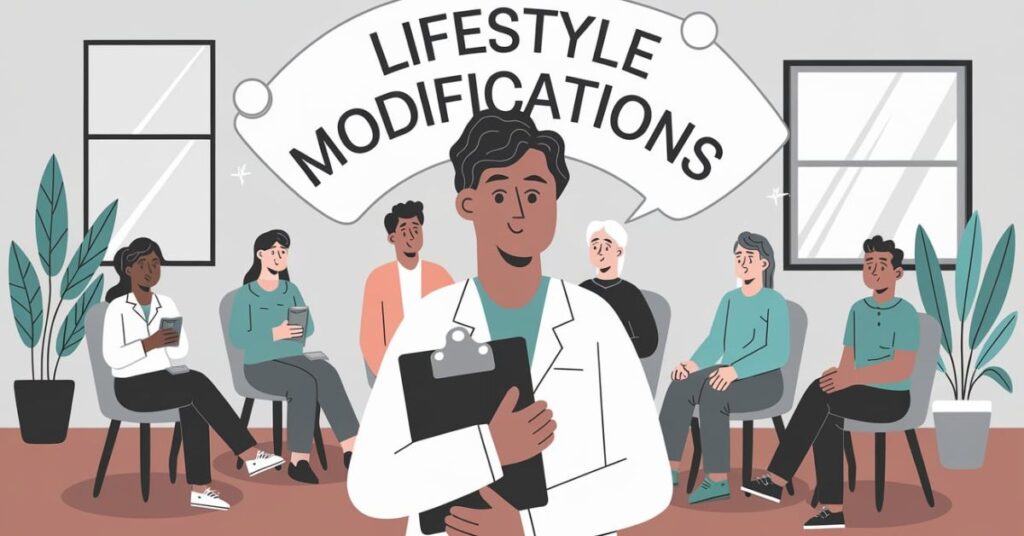
Stress management plays a vital role in controlling blood pressure effectively. Regular meditation, deep breathing exercises, and mindfulness practices help reduce stress-related blood pressure elevation.
Quality sleep significantly impacts blood pressure regulation throughout the day. Adults should aim for 7-9 hours of uninterrupted sleep nightly to support healthy blood pressure levels.
Alcohol consumption directly affects blood pressure, making moderation crucial. Limiting intake to one drink daily for women and two for men can help maintain healthier blood pressure readings.
Natural Supplements and Herbs
Natural Supplements and Herbs play a vital role , some of the reasons to consider them includes the following below
Beneficial Supplements
Certain supplements show promise in supporting healthy blood pressure levels. Coenzyme Q10, fish oil, and garlic supplements have demonstrated positive effects in clinical studies.
Research indicates these supplements work best when combined with other ways to lower blood pressure. Always consult healthcare providers before starting any supplement regimen.
Regular monitoring helps determine supplement effectiveness for your situation. Some people experience significant benefits, while others may need to explore different approaches.
Herbal Remedies
Traditional herbs like hibiscus, hawthorn, and French lavender may help manage blood pressure. Scientific studies support many traditional uses of these natural remedies.
Green tea contains compounds that support cardiovascular health and blood pressure regulation. Regular consumption may contribute to overall blood pressure management success.
Herbal remedies should complement, not replace, other ways to lower blood pressure. Working with healthcare providers ensures safe and effective use of herbal supplements.
Stress Management Techniques
- Practice daily meditation or mindfulness exercises
- Engage in regular deep breathing sessions
- Maintain a consistent sleep schedule
- Participate in relaxing activities like yoga or tai chi
- Develop healthy coping mechanisms for daily stressors
Monitoring Progress
Regular blood pressure monitoring helps track the effectiveness of natural approaches. Keep detailed records of readings, noting factors that might influence results.
Share monitoring data with healthcare providers to ensure safe progress. This collaboration helps identify which ways to lower blood pressure work best for your situation.
Success often comes from combining multiple approaches tailored to individual needs. Track what works best for you and adjust strategies accordingly.
Success Stories
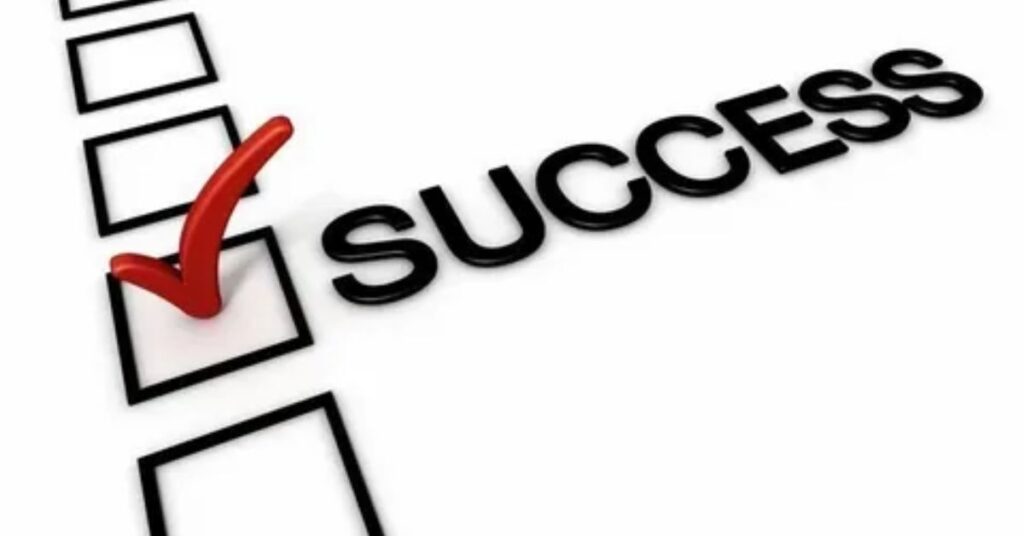
[Case Study: Sarah’s Journey]
Sarah, age 45, lowered her blood pressure from 148/95 to 122/78 in four months. She combined the DASH diet, daily walks, and stress management techniques to achieve these results.
[Case Study: Michael’s Success]
Michael, age 58, reduced his systolic pressure by 15 points using meditation and sodium reduction. His success demonstrates how lifestyle changes can significantly impact blood pressure.
[Case Study: Lisa’s Transformation]
Lisa, age 52, found success through weight loss and regular exercise. Her blood pressure normalized within six months using these natural approaches.
Long-term Management
Consistency in using multiple strategies is key to effectively lowering blood pressure. Instead of quick fixes, aim for changes that fit easily into your daily routine, such as healthier eating, regular exercise, and stress management.
Regularly evaluating your progress helps ensure these efforts remain effective. Monitoring your body’s response allows you to make necessary adjustments and stay on track with your goals.
Working with healthcare providers is essential for safe and successful management. They can tailor strategies to your needs, track your progress, and guide you in maintaining overall cardiovascular health.
Read this Blog: Understanding Gallbladder Disease: Symptoms, Causes, and Treatment Options
Final Insights
Natural methods for lowering blood pressure are effective alternatives to medication for many people. Combining approaches like healthy eating, exercise, and stress reduction can yield better results. Consistency is key to maintaining improvements over time.
Lifestyle changes for blood pressure control also boost overall health and quality of life. They can reduce disease risk, increase energy, and improve emotional well-being. Small, steady efforts often lead to lasting benefits.
Patience is vital, as natural methods take time to show results. Regular monitoring ensures your approach remains effective and on track. Consulting healthcare providers helps refine strategies and maintain safety.
Frequently Asked Questions
How quickly can natural methods lower blood pressure?
Most people see improvements within 2-4 weeks of consistent effort.
Can natural methods replace blood pressure medication?
Always consult healthcare providers before modifying prescribed medications.
Which natural method is most effective?
Combined approaches typically work better than single methods alone.
How often should I monitor my blood pressure?
Check at the same time daily and keep detailed records.
Are natural methods safe for everyone?
Most natural approaches are safe but should be discussed with healthcare providers first.

Zade Smith is a Proficient writer on TechsBlip, dedicated to delivering high-quality content that bridges the gap between medical research and accessible, reader-friendly guidance. With a keen interest in promoting healthy lifestyles and disease prevention, Zade’s writing offers expert insights, actionable tips, and evidence-based information to help readers make informed decisions about their health and wellness

